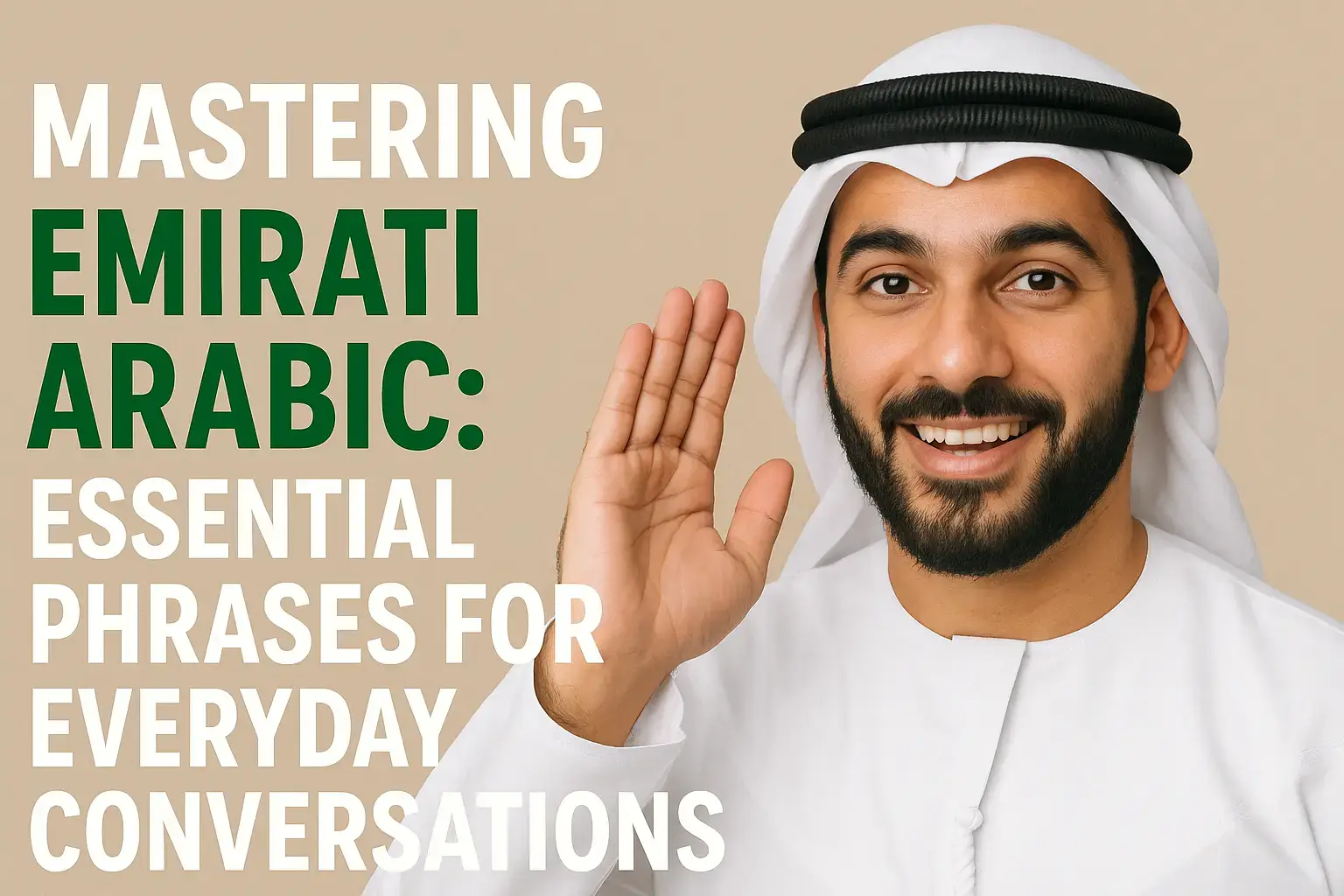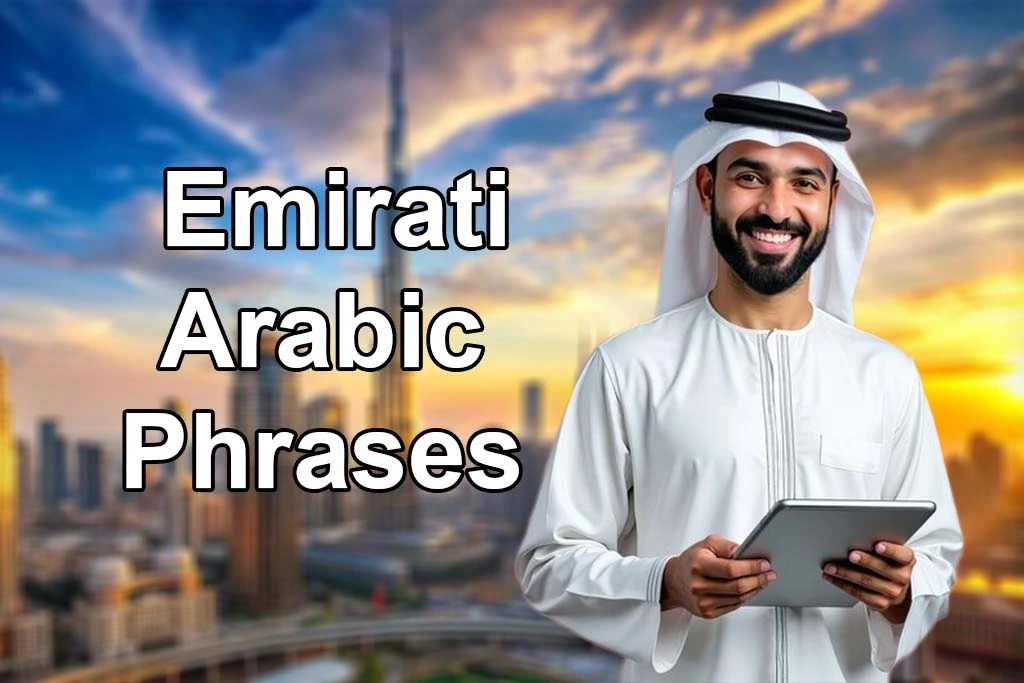
Mastering Emirati Arabic: Essential Phrases
- 28. Sep, 2025

Emirati Arabic Phrases: A Complete
- 03. Sep, 2025

Is the Business English Course
- 31. Aug, 2025

Emirati Arabic (العَربيَّة ٱلْإِمارَاتِيَّة) is the Emirati dialect of Gulf Arabic and the national language of the United Arab Emirates. Emirati Arabic (UAE Arabic) is useful for anyone wanting to communicate with people and become part of the local community in the UAE. These are a selection of most commonly used Emirati Arabic phrases that you might hear in day to day life.
Asking someone’s name is a common way to start a conversation. In Emirati culture, introductions are often accompanied by a handshake or a nod, depending on the context.
Person A: شو اسمك؟ (Shu ismak?)
Person B: اسمي علي (Ismi Ali)
Person A: تشرفت بلقائك (Tasharraft biliqa’ik) – “Nice to meet you.”
This phrase is often used to ask about someone’s identity. It’s casual and typically used when getting to know someone.
Person A: إنت منو؟ (Inta mino?)
Person B: أنا أحمد (Ana Ahmed)
Person A: أهلاً وسهلاً (Ahlan wa sahlan) – “Welcome!”
This phrase helps you ask someone where they are from, whether it’s their hometown or country.
Person A: من وين إنت؟ (Min wain inta?)
Person B: أنا من دبي (Ana min Dubai)
Person A: حياك الله (Hayak Allah) – “Welcome!”
This phrase is used to ask where someone is at the moment, whether they’re at a location or somewhere nearby.
Person A: وين إنت؟ (Wain inta?)
Person B: أنا في المطار (Ana fi al-matar)
Person A: طيب، أنا جايك (Tayyib, ana jayik) – “Okay, I’m coming to you.”
How to Greet in Emirati Arabic?
Person A: كيف حالك؟ (Kayf halak?)
Person B: زين، شكرًا (Zain, shukran)
Person A: الحمد لله (Alhamdulillah) – “Thank God.”
These greetings are widely used in both formal and informal settings. Responding with “وعليكم السلام” (Wa alaykum as-salam) is customary after “السلام عليكم.”
Person A:كيف حالك؟ (Kayf halak?) – “How are you?”
Person B:أنا بخير، الحمد لله (Ana bikhair, alhamdulillah) – “I’m fine, thank God.”
Person A:وأنت؟ (Wa anta?) – “What about you?”
Person B:أنا بخير أيضًا، شكرًا (Ana bikhair ayzan, shukran) – “I’m good too, thank you.”
This phrase is used to return the question, “And you?” It’s a polite way to reciprocate inquiries about well-being.
Person A: شكراً جزيلاً! (Shukran jazeelan) – “Thank you very much!”
Person B: على الرحب والسعة (Ala al-rahb wa al-sa’ah) – “It’s my pleasure!”
A simple yet powerful way to express gratitude. For emphasis, you can say “شكراً جزيلاً” (Shukran jazeelan) – “Thank you very much.”
Arabic: عفواً (Afwan)
Explanation: This is a polite response to someone saying “thank you.” It means “You’re welcome” or “No problem.”
Example in context:
Person A: شكراً على المساعدة! (Shukran ‘ala al-musa’ada) – “Thank you for the help!”
Person B: عفواً (Afwan) – “You’re welcome.”
In this case, “عفواً” (Afwan) is used to acknowledge the gratitude and respond politely.
To truly grasp the nuances of Emirati Arabic, immersive learning is key. Engaging with native speakers, practicing regularly, and utilizing comprehensive courses, such as the Emirati Arabic course offered by Artin Institute, can accelerate your proficiency.
Learning Emirati Arabic opens doors to deeper connections and a richer understanding of the UAE’s culture. By mastering these essential phrases, you can navigate daily interactions with confidence and respect. Remember, language is not just about words; it’s about building bridges and fostering relationships.